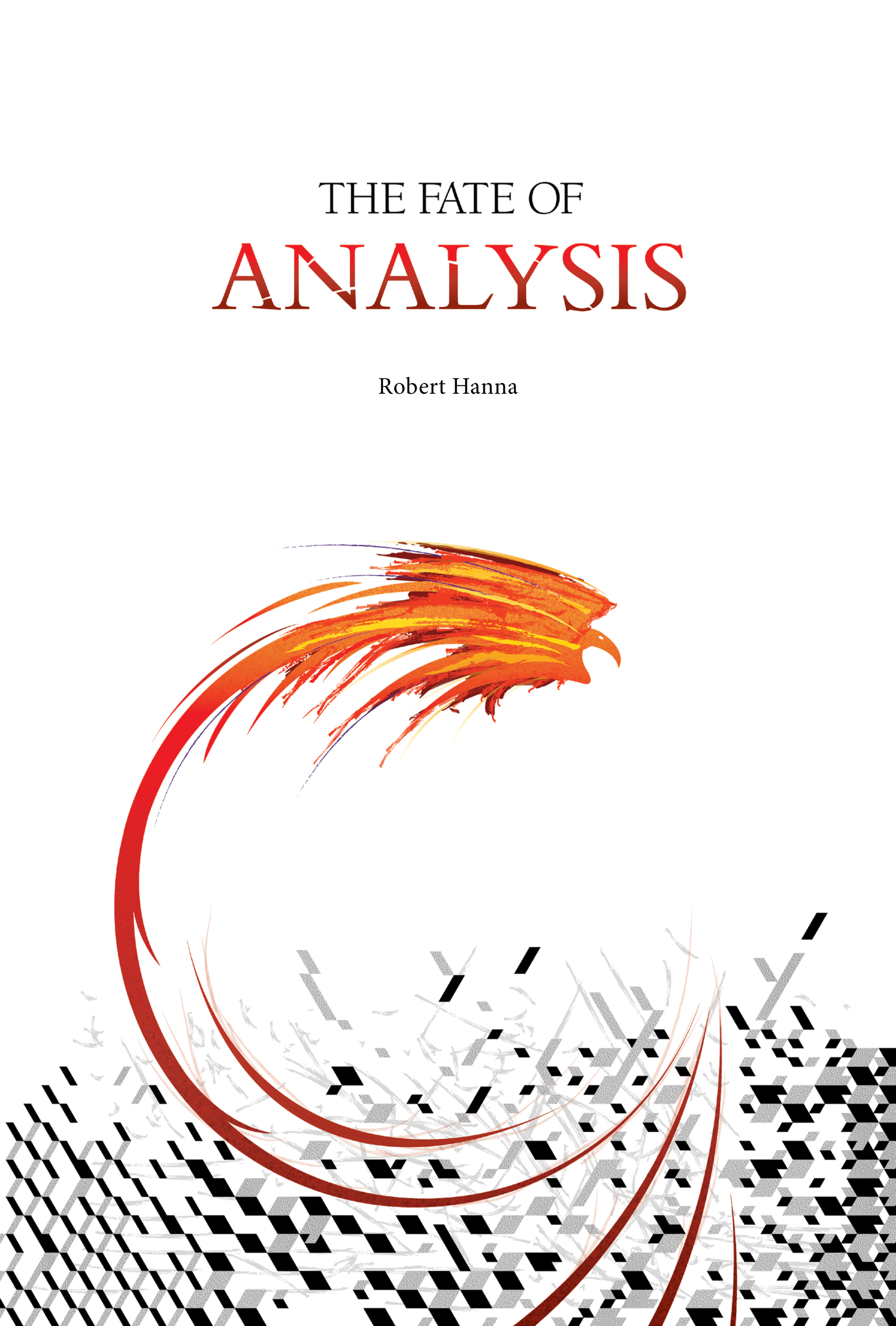FREE AGENCY: the conjunction of free will and practical agency, which in turn means (i) that you can choose and do what you want to, or refrain from so choosing or doing, without being in any way compelled or prevented by irresistible inner or outer forces (i.e., free will), and (ii) that you can self-consciously choose and do what you want to, for reasons, and with deep moral or non-moral responsibility (i.e., practical agency).
Controversy: Leaving aside theological issues, what I’ll call the free agency problem is just this: given the truth of modern science, how is human free agency really possible?
That is: given the truth of modern science, are we really nothing but “biochemical puppets”[1] or “moist robots,”[2] that is, nothing but natural automata, or natural machines, whose evolutionary and neurobiological mechanisms continually generate the cognitive illusion that we are free agents?
Standardly in contemporary philosophy, however, the problem of free agency is confusedly and confusingly run together with “the problem of free will and determinism.”[3]
ELABORATION
So, what is “the problem of free will and determinism”?
Here are some preliminaries.
The classical thesis of Universal Natural Determinism says that all present and future spacetime events, including all the things we specifically choose and do, are necessitated by all the settled facts about the past, together with all the general causal laws of nature.
So if Universal Natural Determinism is true, then either whatever I am choosing or doing now is directly necessitated by The Big Bang (I’ll call this distal determination), or else at the very least there is a more spatiotemporally local deterministic process or state of the physical world, which, together with the settled facts about the past and the laws of nature, necessitates what I choose or do now (I’ll call this proximal determination).
Otherwise put, if Universal Natural Determinism is true, then either The Big Bang causally flows right through me (= distal determination), or else the more local physical environment causally flows right through me (= proximal determination).
In either case, if Universal Natural Determinism is true, then all the events in my life, now and henceforth until I die, are lawfully causally necessitated by the settled facts about the past—really, I am a deterministic natural automaton.
Now, the classical thesis of Compatibilism[4] says that free will and Universal Natural Determinism are mutually consistent: that is, it is logically or metaphysically possible that at least some spacetime events are both free and also determined in a world in which all spacetime events are determined, and also logically or metaphysically possible that all free spacetime events are also determined in a world in which all spacetime events are determined.
Correspondingly, the classical thesis of Incompatibilism[5] says that free will and Universal Natural Determinism are mutually inconsistent: that is, it is logically or metaphysically impossible that any spacetime events are both free and determined.
Granting those preliminaries, then “the problem of free will and determinism” as it’s standardly formulated in contemporary philosophy, is simply the problem of choosing a doctrine from a supposedly exhaustive metaphysical menu with three options, as follows:
Hard Determinism: Free will and Universal Natural Determinism are mutually inconsistent, free will is impossible, and Universal Natural Determinism is true.
Soft Determinism: Free will and and Universal Natural Determinism are mutually consistent, free will exists, and Universal Natural Determinism is true.
Classical Libertarianism: Free will and Universal Natural Determinism are mutually inconsistent, free will exists, and Universal Natural Determinism is impossible,
either (i) because free will exists as an essential property of a special agent-substance, existing outside the natural causal order or inside that order (classical agent-causationism),
or (ii) because some indeterministic processes exist in nature and free will is among them (event-causal indeterminism),
or (iii) because some indeterministic processes exist in nature and free will is not among them because it exists over and above natural processes (non-causal indeterminism).
As I mentioned above, the thesis that free will and Universal Natural Determinism are mutually logically or metaphysically consistent is classical Compatibilism.
So Soft Determinism is a form of classical Compatibilism.
Strictly speaking, classical Compatibilism does not require asserting either the existence of free will or the truth of Universal Natural Determinism.
These are further substantive metaphysical theses that need to be fully explicated and defended.
As a matter of fact, however, most contemporary Compatibilists are also Soft Determinists.
But it’s worth remembering that classical Compatibilism on its own is only a modal metaphysical thesis about mutual consistency, and furthermore that Soft Determinism does not follow just by conceptual-logical entailment from classical Compatibilism.[6]
One way of seeing this important dialectical point is the recognition that Soft Determinism is in fact a version of deflationary Libertarianism, since it postulates the actual existence of a certain metaphysically non-robust and indeed merely psychological and/or epistemic kind of free will, whereas classical Compatibilism is not, in and of itself, a version of any kind of Libertarianism.
Classical Compatibilism is, rather, only the thesis that Universal Natural Determinism and some or another kind of free will, no matter how deflationary or inflationary this conception of free will might be, are mutually consistent.
As I also mentioned above, the thesis that, on the contrary, free will and Universal Natural Determinism are mutually inconsistent is classical Incompatibilism.
Like classical Compatibilism, classical Incompatibilism on its own is only a modal metaphysical thesis.
So Hard Determinism and Classical Libertarianism are both forms of classical Incompatibilism, yet also involve further substantive metaphysical claims that need to be fully explicated and defended.
Deviating slightly from the standard menu of three options, there’s a contemporary view closely related to Soft Determinism, defended by John Martin Fischer, which says that although free will and Universal Natural Determinism are mutually inconsistent, nevertheless moral responsibility[7] and Universal Natural Determinism are mutually consistent, Universal Natural Determinism is true, and moral responsibility exists even if free will is impossible.
This is Semi-Compatibilism.[8]
Now in addition to all those options, in fact, most contemporary philosophers and scientists, and many non-philosophers too, hold that no one is really free, because they also believe that the truth of modern science entails a thesis I’ll call Universal Natural Mechanism.
Universal Natural Mechanism says
(i) that everything that happens is either deterministic, indeterministic, or some mixture of both (say, macroscopically deterministic but microscopically indeterministic at the quantum level), and
(ii) that all the causal and quantitative characteristics of those happenings are not only
(ii.a) strictly fixed by the general causal laws of nature and/or the mathematical laws of probability, especially those laws governing the conservation of quantities of matter or energy, together with all the settled facts about the past, especially including The Big Bang Singularity, but also
(ii.b) calculable from those laws and facts on an ideal digital computer, aka a Turing machine.[9]
If Universal Natural Mechanism is true, then you, I, and everyone else aren’t really free, because, instead, no matter what we may believe about your own freedom, we’re all really deterministic or indeterministic natural automata, aka natural machines, ultimately caused by The Big Bang Singularity.
Correspondingly, there’s a slightly deviant contemporary view closely related to Hard Determinism, defended by Derk Pereboom, which says that free will and Universal Natural Determinism are mutually inconsistent, that free will is conceptually-logically or metaphysically possible but not actual, and that, given the truth of contemporary physics, it follows that one or another of the three mutually exclusive disjuncts of Natural Mechanism is true.
This is Hard Incompatibilism.[10]
And finally, there is also another slightly deviant contemporary view closely related to both Soft Determinism and Hard Incompatibilism, defended by Manuel Vargas, which says that despite the fact that classical Compatibilism is true, nevertheless our cultural, intellectual, and social history strongly inclines us to believe in classical Incompatibilism, and then we feel and act accordingly, on the basis of a cognitive illusion: so, rationally, we ought to revise our concepts in order to conform with the compatibilistic facts, and then feel and act accordingly.
This is Revisionism.[11]
So much for the leading contemporary views on “the problem of free will and determinism.”
My own view is that Hard Determinism, Soft Determinism, Classical Compatibilism, Classical Libertarianism, Semi-Compatbilism, Universal Natural Mechanism, Hard Incompatibilism, and Revisionism are all demonstrably false, and that sharply on the contrary, another view distinct from all of these, Natural Libertarianism, is not only true, but also decisively solves the problem of free agency.[12]
For the purposes of this entry, I’ve defined free agency as the the conjunction of free will and practical agency, which in turn means (i) that you can choose and do what you want to, or refrain from so choosing or doing, without being in any way compelled or prevented by irresistible inner or outer forces (i.e., free will), and (ii) that you can self-consciously choose and do what you want to, for reasons, and with deep moral or non-moral responsibility (i.e., practical agency).
And by deep moral or non-moral responsibility for X, I mean (i) that X is something you chose or did yourself, whose objective moral value flows from and directly attaches to your freely willed choice or action, and (ii) that deep moral responsibility requires free will—if you were not able to choose or do X, without being in any way compelled or prevented by irresistible inner or outer forces, then you could not be deeply morally or non-morally responsible for X.
An example of choice and action with deep moral responsibility would be your deciding, right now, either to join, or to quit, The Democratic Socialists of America.
And an example of choice and action with deep non-moral responsibility would be creating a work of art.
Now, as we’ve seen above, the thesis of Universal Natural Determinism says that everything that happens now and in the future is strictly fixed by the laws of nature together with all the actual facts about the past.
Contrastively, the thesis of Natural Indeterminism says that at least some things and perhaps all things that happen are not strictly fixed by the laws of nature together with all the actual facts about the past, but also happen more or less randomly, according to mathematical laws of probability.
And again, Universal Natural Mechanism says
that everything that happens is either deterministic, indeterministic, or some mixture of both, and
(ii) that all the causal and quantitative characteristics of those happenings are not only
(ii.a) strictly fixed by the general causal laws of nature and/or the mathematical laws of probability, especially those laws governing the conservation of quantities of matter or energy, together with all the settled facts about the past, especially including The Big Bang Singularity, but also
(ii.b) calculable from those laws and facts on an ideal digital computer, aka a Turing machine.
I’ll now briefly present a theory of free agency called Natural Libertarianism,[13] that’s neither contrary to contemporary natural science nor committed to the thesis of natural mechanism, and, correspondingly, I’ll also briefly provide a new proof for the real possibility of human free agency, by explaining and proving its actual existence.
Natural Libertarianism flows from two simple but earth-shattering ideas proposed by Kant in the 18th century, and also from one slightly less simple but still earth-shattering idea proposed by Nobel laureate Ilya Prigogine in 1997.[14]
First, action that is perfectly in conformity with a law, is not necessarily entailed or otherwise necessitated by that law (Kant’s earth-shattering idea #1).
Second, real freedom presupposes, in rational human animals, the natural processes specifically characteristic of living organisms; but living organisms are not natural automata, whether deterministic or indeterministic, because they are self-organizing and purposive; hence real freedom is grounded in biological anti-mechanism (Kant’s earth-shattering idea #2).
And third, the correct physics is a non-deterministic (and also non-indeterministic, but for simplicity’s sake in this entry I will highlight the non-determinism) interpretation of non-equilibrium thermodynamics (Prigogine’s earth-shattering idea).
For simplicity’s sake, I’ll refer to Prigogine’s earth-shattering idea by using the acronym “NDI-NET.”
And let us suppose, for the purposes of argument, that NDI-NET, as worked out, for example, by Prigogine in The End of Certainty is true, and that all the general causal laws of nature and/or mathematical laws of probability, as formulated by modern science—with the exception of The 2nd Law of Thermodynamics, requiring that in the spontaneous evolution of a physical system, entropy never decreases (hence requiring that entropy is always either increasing, or else constant in an equilibrium, time-reversible state, in every spontaneously evolving physical system), which isn’t universally true if non-equilibrium thermodynamics is universally true—are also true, under the NDI-NET interpretation.
From these suppositions, taken together with Kant’s two ideas, not only does it not follow that Universal Natural Mechanism is true and that we are really natural automata, it also follows that Universa Natural Mechanism isn’t true—i.e., it’s false—and that we all really aren’t natural automata/natural machines.
To see this, suppose that everything we choose and do is at least consistent with those general causal natural laws and/or mathematical laws of probability (with the exception of The 2nd Law of Thermodynamics, which of course isn’t universally true if NDI-NET is universally true), and that therefore we never violate any of them.
And in particular, suppose that we never bring any new matter or energy into the natural world, hence we never violate any of the general causal natural laws and/or mathematical laws of probability governing the conservation of quantities of matter or energy.
Nevertheless, it does not follow that whatever we choose and do is entailed or
otherwise necessitated by those laws.
This is because, as Kant pointed out, mere conformity of action with laws is not the same as entailment or necessitation by laws.
Indeed, for any general causal law of nature and/or mathematical law of probability whatsoever, no matter how specific it is, together with all the settled natural facts about the past, nevertheless, there is always some physical open texture that is not entailed or necessitated by that law, although it remains perfectly in conformity with the laws.
More precisely, in the wake of The Big Bang Singularity, there is always and everywhere some physical open texture that, at various stages of far-from-equilibrium, temporally-unidirectional, complex, negentropic, self-organizing thermodynamic activity, as studied in NDI-NET, creates targets for ultra-specific, context-sensitive natural activity, for example: (i) the roiling surface-structures of boiling water, (ii) the Belousov-Zhabotinsky chemical reaction, plus light excitation, (iii) the unfolding of weather systems, (iv) the development of viruses, (v) organismic activity including the purposive lives of simple organisms, plants, and animals, (vi) the desires, feelings, passions, perceptions, and thoughts of conscious animals, and above all, (vii) really free choice and action by conscious animals, including rational human animals.
I’ll call these thermodynamic targets live options, and this physical open texture natural open space.
Given some live options in natural open space, then, even though you never violate any general causal laws of nature and/or mathematical laws of probability and never bring any new matter or energy into the natural world, it remains really possible for you, in context, to choose and do some things you want to, in purposive, creative, and morally-empowered ways, by spontaneously locally re-organizing and re-structuring the total quantity of matter or energy that’s always already available then and there.
For example, imagine Nietzsche writing The Birth of Tragedy Out of The Spirit of Music.
Needless to say, that amazing book had never been produced before in the actual history of the all-inclusive natural or physical universe.
Correspondingly, I’ll call this sort of activity natural creativity.
Now, inspired by Nietzsche’s example, I am now going to do a little spontaneous Dionysian dance by flapping my arms and legs, bobbing my head, and hopping up and down a bit (but also being very careful not to spill my coffee, or knock over my laptop computer): I will call this The Freedom Dance.
The Freedom Dance, as an act of natural creativity, is just like a creative artist who makes an original work of art by spontaneously locally re-organizing and re-structuring whatever already-existing materials are given to them: in that sense, it is just like Nietzsche creating The Birth of Tragedy.
As naturally creative animals, we are all natural creative artists of our own choices and intentional body movements, little singularities and little bangs, who purposively bring new energy-structures into the world, and thereby actualize potential energy.
As we’ve seen, The Big Bang Singularity has done many things.
But it did not, on its own, write The Birth of Tragedy, nor did it do The Freedom Dance.
On the contrary, Nietzsche wrote The Birth of Tragedy, and I did The Freedom Dance, with actual free agency in both cases.
Therefore, neither Nietzsche, I, nor anyone else, is a natural automaton or natural machine; instead we are all naturally creative animals who are fully capable of free agency.[15]
So, self-evidently, Natural Libertarianism is true, given my original assumptions.
See, e.g., S. Harris, Free Will (New York: Free Press, 2012). ↩︎
See J. Schuessler, “Philosophy That Stirs the Waters,” New York Times (29 April 2013), available online at URL = http://www.nytimes.com/2013/04/30/books/daniel-dennett-author-of-intuition-pumps-and-other-tools-for-thinking.html?emc=eta1&_r=0. ↩︎
See, e.g., J. Campbell, M. O’Rourke, and D. Shier (eds)., Freedom and Determinism (Cambridge: MIT Press, 2004); J.M. Fischer, R. Kane, D. Pereboom, and M. Vargas, Four Views on Free Will (Oxford: Blackwell, 2007); R. Kane, A Contemporary Introduction to Free Will (Oxford: Oxford Univ. Press, 2005); Kane (ed.), The Oxford Handbook of Free Will; and G. Watson (ed)., Free Will (2nd edn., Oxford: Oxford Univ. Press, 2003). ↩︎
See, e.g., C. Hoefer, “Causal Determinism,” The Stanford Encyclopedia of Philosophy (Spring 2016 Edition), E.N. Zalta (ed.), available online at URL = http://plato.stanford.edu/archives/spr2016/entries/determinism-causal/; M. McKenna and J. Coates, “Compatibilism,” The Stanford Encyclopedia of Philosophy (Summer 2015 Edition), E.N. Zalta (ed.), available online at URL = http://plato.stanford.edu/archives/sum2015/entries/compatibilism/. ↩︎
See, e.g., R. Clarke and J. Capes, “Incompatibilist (Nondeterministic) Theories of Free Will,” The Stanford Encyclopedia of Philosophy (Fall 2015 Edition), E. N. Zalta (ed.), available online at URL = http://plato.stanford.edu/archives/fall2015/entries/incompatibilism-theories/; and K. Vihvelin, “Arguments for Incompatibilism,” The Stanford Encyclopedia of Philosophy (Fall 2015 Edition), E.N. Zalta (ed.), available online at URL = http://plato.stanford.edu/archives/fall2015/entries/incompatibilism-arguments/. ↩︎
Many thanks to Kristin Mickelson for emphatically making this point to me in conversation and in her PhD dissertation, Free Will Fundamentals: Agency, Determinism, and (In)Compatibility (Univ. of Colorado at Boulder, 2012). The point is that Soft Determinism is not metaphysically cheap. It takes substantive metaphysical work, and more specifically, substantive metaphysical work in the philosophy of mind, to explain it. ↩︎
Like most contemporary philosophers of free will and agency, Fischer does not distinguish between deep and shallow moral responsibility, and focuses exclusively on shallow responsibility. ↩︎
See J.M. Fischer, “Frankfurt-type Examples and Semi-Compatibilism,” in Kane (ed.), The Oxford Handbook of Free Will, pp. 281-308; and J.M. Fischer, My Way (New York: Oxford Univ. Press, 2006). ↩︎
See A. Turing, “On Computable Numbers, with an Application to the Entscheidungsproblem,” Proceedings of the London Mathematical Society, series 2, 42 (1936): 230-265, with corrections in 43 (1937): 644-546; and G. Boolos and R. Jeffrey, Computability and Logic (3rd edn., Cambridge: Cambridge Univ. Press, 1989), ch. 3. ↩︎
See ., D. Pereboom, Living Without Free Will (Cambridge: Cambridge Univ. Press, 2001); and D. Pereboom, Free Will, Agency, and Meaning in Life (Oxford: Oxford Univ. Press, 2014). ↩︎
See M. Vargas, “Revisionism,” in Fischer, Kane, Pereboom, and Vargas, Four Views on Free Will, ch. 4, pp. 126-165. ↩︎
For all the nitty-gritty details, see R. Hanna, Deep Freedom and Real Person: A Study in Metaphysics (THE RATIONAL HUMAN CONDITION, Vol. 2) (New York: Nova Science, 2018). ↩︎
It should be especially noted that Natural Libertarianism does not have anything to do with political Libertarianism, which is a combination of psychological egoism, ethical egoism, neoliberalism, and the self-serving self-delusion that it’s a form of political anarchism. ↩︎
I. Prigogine, The End of Certainty: Time, Chaos, and the New Laws of Nature (New York: Free Press, 1997). ↩︎
Notice that I’m not saying that it is impossible to design and build a natural automaton/natural machine that, when it is turned on, makes various motions that might fool someone, or even many people, into believing that it was I or you doing The Freedom Dance. It’s logically, really, naturally, and perhaps even technologically possible that there is such a machine. On the contrary, what I’m saying is that, necessarily, the deceptive naturally mechanical motions of such a natural mechanism could not be The Freedom Dance, since that and only that was actually freely performed by me, or for that matter by you, and not by any natural automaton/natural machine designed and built to resemble us in various ways. ↩︎

If you feel so inclined, please feel free to show your support for Robert via his Patron page (https://www.patreon.com/philosophywithoutborders) or purchase his recently published book, The Fate of Analysis (2021).

The Fate of Analysis (2021)
Robert Hanna’s twelfth book, The Fate of Analysis, is a comprehensive revisionist study of Analytic philosophy from the early 1880s to the present, with special attention paid to Wittgenstein’s work and the parallels and overlaps between the Analytic and Phenomenological traditions.
By means of a synoptic overview of European and Anglo-American philosophy since the 1880s—including accessible, clear, and critical descriptions of the works and influence of, among others, Gottlob Frege, G.E. Moore, Bertrand Russell, Alexius Meinong, Franz Brentano, Edmund Husserl, The Vienna Circle, W.V.O. Quine, Saul Kripke, Wilfrid Sellars, John McDowell, and Robert Brandom, and, particularly, Ludwig Wittgenstein—The Fate of Analysis critically examines and evaluates modern philosophy over the last 140 years.
In addition to its critical analyses of the Analytic tradition and of professional academic philosophy more generally, The Fate of Analysis also presents a thought-provoking, forward-looking, and positive picture of the philosophy of the future from a radical Kantian point of view.







